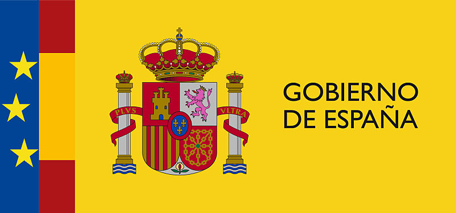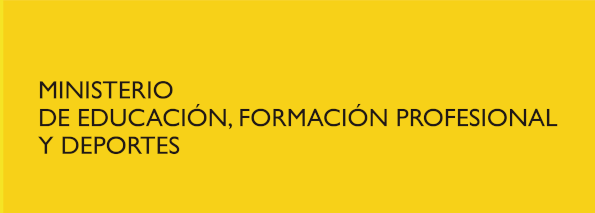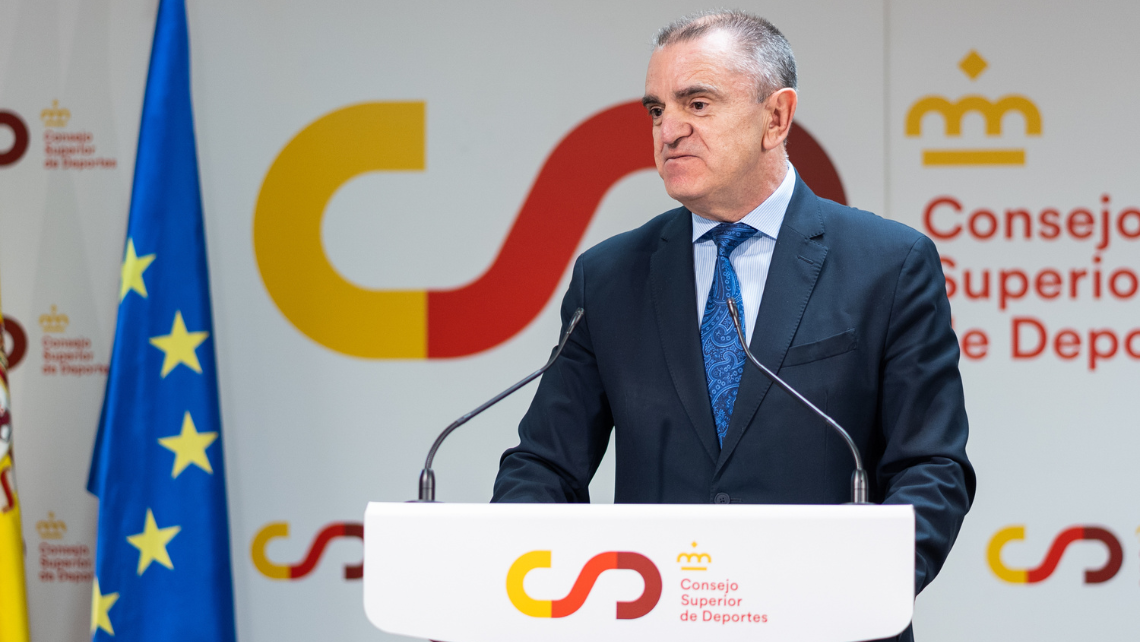José Manuel Franco: “The Government is laying the foundations for the great modernization of Spanish sport”
The new Sports Law, the implementation of European funds, the professionalization of women’s football and the implementation of the Team Spain program are some of the main milestones reached by the CSD during the two years of presidency of José Manuel Franco
The Secretary of State for Sport faces “with optimism, energy and passion” the next objectives, among which stand out the regulatory development of the Law and the implementation of the national strategy to combat sedentarism
Madrid, 30 March 2023.- Today marks two years since José Manuel Franco was appointed President of the Superior Sports Council (CSD) by the Council of Ministers. Two years marked by the definitive return to normality of sports activity after the pandemic and the economic and regulatory impulse to move forward in the renewal of the sector.
“This Government is laying the foundations for the modernization of Spanish sport and is doing so, on the one hand, through unprecedented economic investment supported by both the CSD budgets and European funds; and, on the other, through an ambitious legislative renewal to adapt the sports sector to the 21st century,” says José Manuel Franco.
These advances, explains the Secretary of State for Sport, have always been “the result of dialogue, constructive debate and collaboration between the different agents involved, ranging from sports federations and organizations to autonomous governments and parliamentary groups.”
A historic budget allocation
The Higher Sports Council has the largest budget in its history in 2023: an investment of 381 million euros, which means, in absolute terms, 85% more than in 2018 and 66 million more than last year. This record figure exceeds the 1.1 billion euros invested during this term, which means exceeding the one billion euros announced by the government for sport in these four years.
The funds of the Recovery, Transformation and Resilience Plan (PRTR) are being decisive for the modernization of the Spanish sport. During these two years, significant progress has been made in the implementation of the investments of Component 26, which has a budget of 300 million aimed at three axes of improvement of the sports sector: digitalization, ecological transition and Social Plan. Between 2021 and 2023 more than 100 million euros have been territorialized between Communities and Autonomous Cities.
During this period, progress has been made in the modernization of the infrastructures for sports in the High Performance Centres (CAR) of Madrid, León and Sierra Nevada, as well as in the Network of Centres of the Autonomous Communities. This investment has already allowed, for example, the improvement of the lighting conditions of the rhythmic gymnastics room in the CAR of Madrid, where the Spanish team, already classified for the Paris 2024 Games, trains.
In addition, subsidy lines are planned for the modernization of sports facilities to host international sports events and for the promotion of sustainable sports tourism.
Renewal of the regulatory framework
From a legal point of view, the most important milestone of José Manuel Franco’s two-year term is the adoption of a new Sports Law. The text renews the legislation of 1990 and adapts it to a sports sector much more developed and professionalized than 30 years ago.
Among the main issues addressed by the new law are the express recognition of the right to physical activity and sport as an essential activity of citizenship; the search for real and effective equality and inclusion; the clear and precise regulation of the figure of the athlete; the establishment of a framework of interadministrative relations on the basis of collaboration; and the delimitation of public and private functions of Spanish sports federations. The new regulation delves into the economic control of Spanish federations and professional leagues, in order to improve their sustainability and, consequently, that of the competitions they organize and that of the clubs that participate in them.
Determined commitment to equality
Equality has been the transversal axis of the Government’s sports policies during these two years, both in legislative, administrative and promotional matters.
One of the areas in which the government’s push for equality in sport has become more evident is in the professionalisation of the highest female football category, in June 2021, and the corresponding approval of the statutes of the Professional Women’s Football League, in 2022.
In addition, the CSD has contributed to the establishment of the competition by awarding various grants for its development.
In the federal context, during the past two years the Social Security Council has promoted the presence of women in the governing bodies, currently establishing a 40 per cent percentage in its Boards of Directors as a requirement for obtaining grants from the Council.
The Observatory for Equality in Sport has also been launched, with an interministerial composition; studies have been carried out on the visibility and treatment of women in sports information -with their respective action plan-; a protocol of good practices has been signed with RTVE and almost 18 million euros of European funds have been territorialized among the CC.AA. para el desarrollo de proyectos en materia de igualdad de género e inclusión.
Equality and inclusion will also be the cornerstones of the Spanish presidency of the EU in sports.
The “second revolution” of Spanish sport
As the president of the CSD has stressed on several occasions, the objective of the organization is to promote the “second revolution” of Spanish sport, with the goal of matching or exceeding the 22 medals of the Barcelona 92 Games, until now the glass ceiling of the Olympic results of Spain.
To this end, a call has been approved for multiannual grants to the Sports Federations worth 173,660,250 euros for 2022, 2023 and 2024 -57.8 million per year-, with the intention of guaranteeing the economic stability and continuity of sports programs throughout the Olympic and Paralympic cycle that will culminate in Paris 2024.
An injection that is complemented by the new program Team Spain Elite, aimed at preparing the athletes with more options to reach the Olympic Games finals and be medallists at the Paralympics in Paris. Endowed with 16 million per year, it has already benefited 32 federations, 301 sportsmen and 94 coaches.
Under this programme, for example, the new 800m European champion on the indoor track, Adrián Ben, was able to hold a two-week rally in South Africa in November. In that same place he will complete part of his preparation for the outdoor season.
Another 12 federations are beneficiaries of the Team Spain Program of Strategic Interest, aimed at non-Olympic specialties, but key in the projection of the image of Spain and the development of the base.
To all this is added the impulse to the Events of Exceptional Public Interest, which delve into public-private collaboration in aspects such as equality, inclusive sport, grassroots sport and Olympic preparation, and to which 50 million euros have been allocated since 2020; the more than 6 million destined for municipal sports facilities to encourage the holding of international competitions; and the 19.4 million in nominative grants to specific projects of improvements of sports infrastructures in different territories of Spain.
Main challenges for 2023
After 730 days at the helm of the Spanish sports house, José Manuel Franco faces the next challenges “with optimism, energy and passion”.
The next challenges of the body will be, among others, the regulatory development of the Sports Law and the implementation of the national strategy of combating sedentarism, among others.




